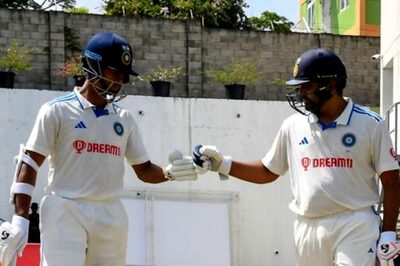
views
The Punjab and Haryana High Court recently observed that an appointment to a civil post is not a position of privilege but rather a means to serve the public.
The bench of Justice Anil Kshetarpal said the government officers and civil servants, who hold the decision-making powers, are expected to address the grievances of the people, who face unfortunate and unjust circumstances.
“It is reasonable to expect that one day a better sense of duty would prevail and grievances of the public will be addressed at the outset,” said the court.
The court observed so while disposing of a writ petition filed by a Mathematics Master employed with the state government seeking withdrawal of his resignation letter.
The Mathematics Master was recruited in 2021, however, pursuant to a government recruitment notice issued on October 19, 2021, he applied for the post of Assistant Professor (Colleges) after getting permission from the competent authority.
The petitioner got selected for the said post, and was issued an appointment letter as well on December 3, 2021. Consequently, he submitted his resignation letter from the position of Math Master.
Meanwhile, by virtue of an interim order passed by the high court, the issuance of the appointment to the post of Assistant Professor was stayed. Hence, the petitioner sought the withdrawal of his resignation letter vide a communication dated December 10, 2021, but the Director, Public Instruction (Secondary Education), Punjab in February this year rejected his plea for withdrawal of resignation letter.
The Director, Public Instruction relied upon Rule 7.5(5) of Chapter 7 of the Punjab Civil Services Rules which provides that:
“Request for withdrawal of a resignation shall not be accepted by the appointing authority where a Government employee resigns his service or post with a view to taking up an appoint in or under a private commercial company or in or under a corporation or company wholly or substantially owned or controller by the Government or in or under a body controller or financed by the Government.”
The petitioner’s counsel argued before the high court that the abovementioned rule was not applicable to the petitioner as he had applied for the recruitment pursuant to a recruitment notice issued by the Punjab Government.
The prima facie conclusion of the high court was that the Director, Public Instruction (Secondary Education) had misinterpreted Rule 7.5(5). Accordingly, court asked the Director, Public Instruction (Secondary Education) to appear in person and clarify his conduct.
However, later on, the court was apprised by the petitioner’s counsel that in view of the subsequent development, the writ petition had become infructuous. Therefore, the court disposed of the same as such.
However, before parting with the matter, the court observed that if the government officer had addressed the issue at hand with the intent to provide relief to the petitioner, the case would not have come to the high court.




















Comments
0 comment